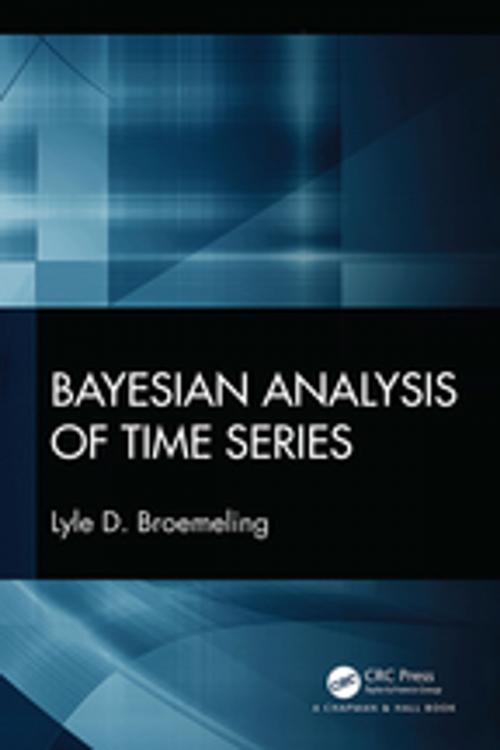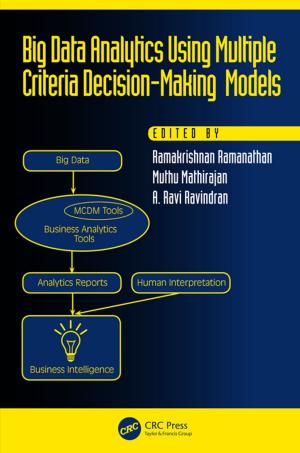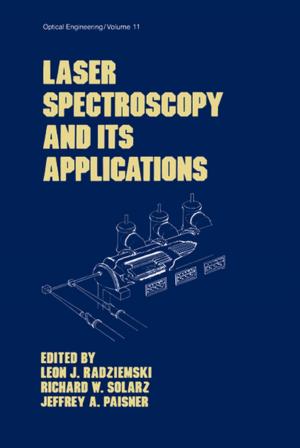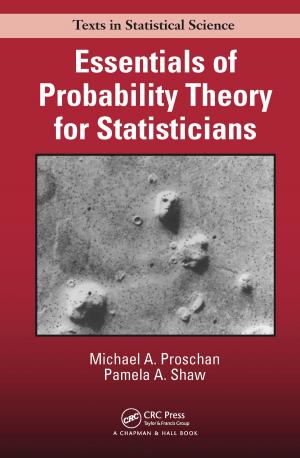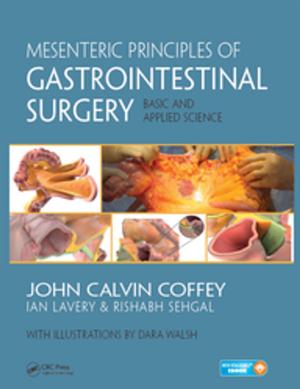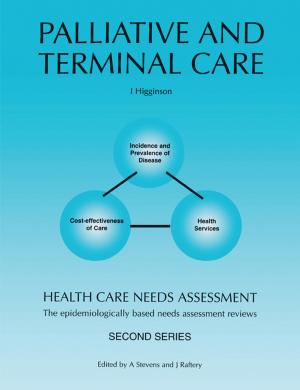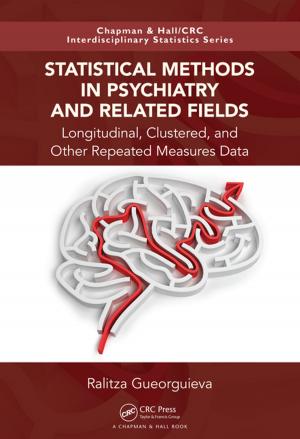Bayesian Analysis of Time Series
Nonfiction, Science & Nature, Mathematics, Statistics, Reference & Language, Reference| Author: | Lyle D. Broemeling | ISBN: | 9780429948916 |
| Publisher: | CRC Press | Publication: | April 16, 2019 |
| Imprint: | Chapman and Hall/CRC | Language: | English |
| Author: | Lyle D. Broemeling |
| ISBN: | 9780429948916 |
| Publisher: | CRC Press |
| Publication: | April 16, 2019 |
| Imprint: | Chapman and Hall/CRC |
| Language: | English |
In many branches of science relevant observations are taken sequentially over time. Bayesian Analysis of Time Series discusses how to use models that explain the probabilistic characteristics of these time series and then utilizes the Bayesian approach to make inferences about their parameters. This is done by taking the prior information and via Bayes theorem implementing Bayesian inferences of estimation, testing hypotheses, and prediction. The methods are demonstrated using both R and WinBUGS. The R package is primarily used to generate observations from a given time series model, while the WinBUGS packages allows one to perform a posterior analysis that provides a way to determine the characteristic of the posterior distribution of the unknown parameters.
Features
-
Presents a comprehensive introduction to the Bayesian analysis of time series.
Gives many examples over a wide variety of fields including biology, agriculture, business, economics, sociology, and astronomy.
Contains numerous exercises at the end of each chapter many of which use R and WinBUGS.
Can be used in graduate courses in statistics and biostatistics, but is also appropriate for researchers, practitioners and consulting statisticians.
About the author
Lyle D. Broemeling, Ph.D., is Director of Broemeling and Associates Inc., and is a consulting biostatistician. He has been involved with academic health science centers for about 20 years and has taught and been a consultant at the University of Texas Medical Branch in Galveston, The University of Texas MD Anderson Cancer Center and the University of Texas School of Public Health. His main interest is in developing Bayesian methods for use in medical and biological problems and in authoring textbooks in statistics. His previous books for Chapman & Hall/CRC include Bayesian Biostatistics and Diagnostic Medicine, and Bayesian Methods for Agreement.
In many branches of science relevant observations are taken sequentially over time. Bayesian Analysis of Time Series discusses how to use models that explain the probabilistic characteristics of these time series and then utilizes the Bayesian approach to make inferences about their parameters. This is done by taking the prior information and via Bayes theorem implementing Bayesian inferences of estimation, testing hypotheses, and prediction. The methods are demonstrated using both R and WinBUGS. The R package is primarily used to generate observations from a given time series model, while the WinBUGS packages allows one to perform a posterior analysis that provides a way to determine the characteristic of the posterior distribution of the unknown parameters.
Features
-
Presents a comprehensive introduction to the Bayesian analysis of time series.
Gives many examples over a wide variety of fields including biology, agriculture, business, economics, sociology, and astronomy.
Contains numerous exercises at the end of each chapter many of which use R and WinBUGS.
Can be used in graduate courses in statistics and biostatistics, but is also appropriate for researchers, practitioners and consulting statisticians.
About the author
Lyle D. Broemeling, Ph.D., is Director of Broemeling and Associates Inc., and is a consulting biostatistician. He has been involved with academic health science centers for about 20 years and has taught and been a consultant at the University of Texas Medical Branch in Galveston, The University of Texas MD Anderson Cancer Center and the University of Texas School of Public Health. His main interest is in developing Bayesian methods for use in medical and biological problems and in authoring textbooks in statistics. His previous books for Chapman & Hall/CRC include Bayesian Biostatistics and Diagnostic Medicine, and Bayesian Methods for Agreement.
